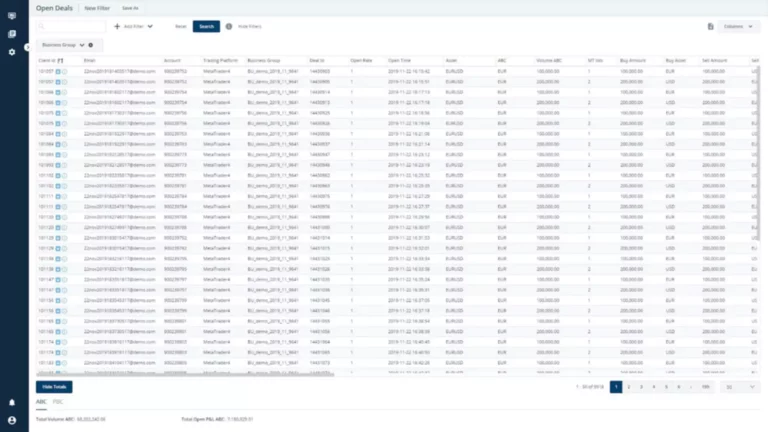Content
Similarly, you https://www.xcritical.com/ may need to earn a credential such as the Certified Risk Manager (CRM) or the Chartered Property Casualty Underwriter (CPCU) to advance your career as an insurance risk manager. Insurance brokers can assist their clients in implementing risk mitigation strategies to reduce the likelihood and impact of potential losses. This may involve recommending safety protocols, implementing security measures, and providing risk management training.
Qualifications for Broker and Risk Manager
Risks also evolve over time, meaning that risk management broker your risk management strategy and insurance coverage need to be regularly reviewed and updated to reflect your current situation. Our analytics solutions provide actionable insights for informed decision-making on managing risk, powered by unrivaled data. The risks faced by certain industries—such as construction, transportation, and energy—are extremely complex and unique.
The obligation on insurers to monitor Underwriting Agencies already exists (don’t wait for CPS
Since perfection can be an impossible standard, the broker or agent is well suited to bridge this gap. General Advice Decentralized finance WarningAny advice provided on this website is of a general nature only and has not considered your needs and objectives. You should refer to the Product Disclosure Statement or policy wording for more information about the policy. Graham draws upon more than 50 years’ experience in the insurance industry, working in both insurance and broking across various private, public and government sectors in Australia. Thousands of your peers in the insurance industry already use IRMI resources to do their jobs better. These members-only sessions led by industry experts will take you on a deep dive into hot-button topics and emerging trends.
Practical examples of risk management strategies
Most organizations aren’t staffed to consider risk from this perspective, nor are they ready to take appropriate action. The broker or agent can be the trusted resource to guide to opening their perspective. Understanding risk management in the world of insurance is crucial, whether you’re an individual seeking to safeguard your assets or a business owner looking to protect your enterprise. We have a long history of helping startups, acquired firms and private organizations navigate the challenges of mergers and acquisitions. From negotiations to closing deals to operations, our team of experts can help you protect equity and intellectual capital.
Risk perception and management: Insights for a changing landscape
- If you are interested in pursuing a career in risk management, you might wonder what are the main differences between an insurance broker and an insurance risk manager.
- This assessment should consider tangible and intangible risks, such as property damage, liability, cyber threats, and business interruption.
- Whether you’re looking for a training program to increase safety and decrease claims, or ways to more efficiently handle claims that do occur, Impact does it all.
- General Advice WarningAny advice provided on this website is of a general nature only and has not considered your needs and objectives.
Mid-market is the most profitable and coveted segment, and therefore the most fiercely competed over. Medium-sized companies have the same problems as Fortune 500 companies, just on a smaller scale. Our dedicated benefits team is focused on delivering better outcomes – to both your benefits program and … In this episode of Powered by Marsh FINPRO, our hosts discuss the nuances of event-driven litigation, specific challenges posed by wildfires and more.
I never purchased insurance for the unexpected, only for the anticipated effects of uncertainty upon my business. That is, I think, the primary difference between a risk manager and an insurance broker; one anticipates and manages the other sells insurance. For those running a business from home, there’s often a blurred line when it comes to insurance coverage.
Combining specialized expertise and advanced analytics, we enable businesses to spot emerging opportunities with confidence. The insurance industry will likely face a changing federal regulatory landscape in the years ahead. Risk management for insurance companies enables insurance companies to succeed among this uncertainty by anticipating and addressing a wide variety of change before risks materialize. With so many different people being involved in this process, the workflows need to be efficient to make sure everything runs as smooth as possible. Reporting everything within your insurance business needs to be a detailed yet effective process.
Different types of risks require different insurance products, and understanding the nuances of each policy is essential to ensure you’re adequately protected. Risk is an inevitable part of doing business, and today’s ever-changing environment poses new challenges for companies. It’s important for organizations to link risk management to their strategy, and build a comprehensive approach and plan to manage risks.

Insurance brokers work with various types of insurance, such as property, liability, health, life, and business. They may specialize in a specific industry or market segment, or offer a range of products and services. Insurance brokers need to have strong communication, sales, and customer service skills, as well as knowledge of insurance products, regulations, and markets.
Contact us to get in touch with an industry or risk subject matter expert, learn more about a specific solution or submit a sales/RFP inquiry. We shape the future through our perspective, expertise and solutions, empowering our clients to thrive. We seek better ways to manage risk and define more effective paths to the right outcome. We go beyond risk to rewards for our clients, our company, our colleagues, and the communities in which we serve. Insurance companies are often concerned with protecting their clients’ physical assets, including their brick and mortar properties.
Improving customer service is only one example of how insurance companies can leverage risk management. A fully integrated enterprise risk management program can help insurance companies develop proactive mitigation activities to protect the core of their business. The demand for management analysts, including insurance risk managers, is expected to increase as organizations seek to improve efficiency, reduce costs, and manage risks.
Why should the broker’s operational inefficiencies be a concern to client-side risk management teams? Well, a top priority is to keep broker partners ahead of the risk curve and ensure their policies at renewal adequately cover the business today – and tomorrow. Operational risk measurement and management has a major impact on insurers and their brokers’ financial risk. Reducing information asymmetry due to enhanced data and allowing better predictability is key to monitoring and managing operational risk. To become an insurance broker or an insurance risk manager, you typically need to have a bachelor’s degree in a relevant field, such as business, finance, economics, or risk management.

Insurance brokers should conduct a thorough risk assessment for each client to identify potential risks and develop appropriate insurance solutions. By understanding the client’s industry, operations, and unique challenges, brokers can accurately assess risk exposures and determine the types and levels of coverage required. This assessment should consider tangible and intangible risks, such as property damage, liability, cyber threats, and business interruption. After conducting a comprehensive risk assessment, insurance brokers should design tailored insurance programs that address their client’s specific needs and risks. By collaborating with insurers, brokers can negotiate policy terms and conditions to ensure optimal coverage. This involves evaluating different policy options, including exclusions, deductibles, limits, and endorsements, to provide clients with the most suitable and comprehensive coverage.

